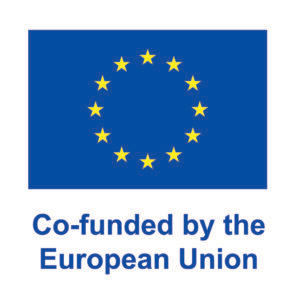SLog4.0
DETAILED TRAINING NEEDS ANALYSIS IS COMPLETED
30/05/2023, Brigita Gajšek and Simona Šinko, Faculty of Logistics, University of Maribor
An important activity within WP2 was A2.2 Designing Questionnaire and conducting a detailed Training needs analysis in which the partners from Politechnika Poznanska, Gaziantep Universitesi, Universidade de Aveiro and University of Maribor designed a survey questionnaire and conducted a detailed training needs analysis. Data was collected on topics needed to prepare logistics students and employees to lead the transformation of classic logistics into Sustainable Logistics 4.0. The activity, which lasted seven months (September 2022 – May 2023), was divided into four tasks, presented in Figure 1.
Figure 1: Tasks for activity A2.2 Designing a questionnaire and conducting a detailed training needs analysis

A2.2 began with a literature review which revealed a detailed insight into learning outcomes, skills and contents identified as necessary for future work in the logistics sector. Additionally, the literature review helps the project team address state-of-the-art pedagogical approaches that have been revealed as contemporary and beneficial for preparing lectures and tutorials for students and adults returning to academia. Some of the pedagogical approaches are presented in Figure 2. The literature review provided clear information that student-centered pedagogical approaches have a much more significant effect on the amount of acquired knowledge and motivate students more strongly to acquire new knowledge. Therefore, the project team will build Course SLog4.0 from the mentioned starting point.
Figure 2: Variety of pedagogical methods

Source: Teaching methods, 2020
An informative insight into the scientific literature was followed by preparing a questionnaire for surveying students, logistics employees and stakeholders who are already implementing breakthrough practices in Green, Sustainable and Industry 4.0. The electronic questionnaire was available in 1KA Arnes from 8th March 2023 to 5th May 2023. In total, 1612 people see the survey introduction page presented in Figure 3. The questionnaire was available in seven languages.
Figure 3: e-questionnaire introduction page

Source: Own source
After reading the introduction, 61% of those invited to complete the questionnaire stopped completing it. In the end, 623 questionnaires (38.64%) were completed. Of these, not all were entirely fulfilled. 425 questionnaires (26%) had all required fields filled out.
Figure 4 presents the number of respondents by individual type of respondent. 80.71% of all respondents present logistics students as the primary target group for course development. With 13.88% they are followed by logistics employees, who will be able to fill the gaps in their knowledge by participating in the future course. Members of national logistics associations and respondents from best practices in Industry 4.0 and Sustainability form the minority of respondents, or 5.41%. The sample was large enough to get an in-depth insight into the skills that different groups of respondents have in the fields of Sustainability, Digitalization and Industry 4.0.
Figure 4: Number of respondents per respondent type

Source: Own source
Respondents rated their ability to perform a specific activity in practice on a scale from 1 to 4, on which values from 1 to 4 have the following meaning:
- 1 - the respondent is definitely not able to implement the given activity in practice;
- 2 - the respondent is probably not able to implement the given activity in practice;
- 3 - the respondent is probably able to implement the given activity in practice;
- 4 - the respondent is definitely able to implement the given activity in practice;
The survey results indicate that on average, students and employees evaluate their capabilities to implement identified activities in digitalization of the processes and sustainability in real life with value 3 (probably able to implement them in practice). The mean average for all types of respondents and all listed activities in the questionnaire was higher than 2, indicating a lack of confidence in the respondents' ability. More detailed analysis showed significant differences between more and less experienced representatives of a specific type of respondents. There are statistically significant differences between the following:
- students who have no experience with digitalization/sustainability and those who have experience with digitalization/sustainability for all defined activities in the questionnaire;
- employees who have no experience with digitalization/sustainability and those who have experience with digitalization/sustainability for all defined activities in the questionnaire.
Thanks to the tasks carried on in A2.2, the project partners have insight into knowledge, skills, and competencies that the students and employees from the logistics sector need in order to significantly contribute to "greening" and digitalization of the logistics sector and become more employable.
To conclude, the results and objectives of A2.2 have been reached and validated by the whole consortium of Slog4.0 project. More detailed survey results will be published in a scientific paper that we are already preparing.
Reference
Teaching Methods. (2020). Accessed at: https://teach.com/what/teachers-know/teaching-methods/


